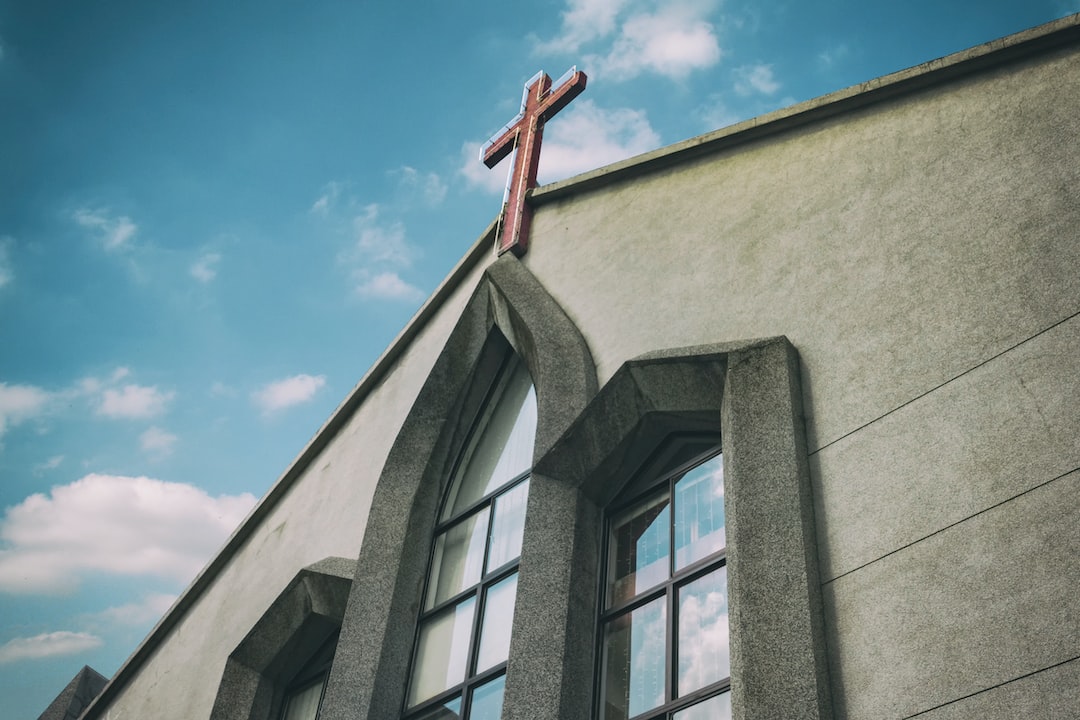Can you get married in a church without being Christened? It’s a question many couples ask when planning their big day.
There are plenty of options for tying the knot, but what about getting hitched in a religious setting if one or both partners aren’t baptized?
We’ll look at all your options to help answer this important question and make sure your special day is exactly as you envision it – whether that includes saying “I do” inside an iconic building of worship or elsewhere.
So, can you get married in a church without being Christened? Keep reading to find out!
Can You Get Married In a Church Without Being Christened?
What is a Church Wedding?
A church wedding is a ceremony held in a religious setting to celebrate the union of two people. It can be officiated by a minister, priest, rabbi, or other clergy member and typically includes traditional elements such as vows, readings from scripture, and prayers. A church wedding often has spiritual significance for both the couple and their families.
Definition of a Church Wedding: A church wedding is an event that takes place in a house of worship to commemorate the joining together of two individuals in the marriage. The ceremony may include rituals from various religions including Christianity, Judaism, Hinduism, or Islam depending on the faith tradition chosen by the couple.
Benefits of a Church Wedding: There are many benefits to having your wedding at a church. For one thing, it provides an intimate atmosphere where couples can share their love with family and friends while also honoring their faith traditions. Additionally, churches usually have plenty of space for guests which makes them ideal venues for larger weddings. Finally, most churches offer pre-marital counseling services which can help couples prepare for married life together before they even say “I do”.
A church wedding is a beautiful and meaningful way to start your marriage, but there are several requirements you must meet to have one. The next heading will discuss these requirements in detail.
Requirements for a Church Wedding
When it comes to getting married in a church, certain religious and legal requirements must be met.
Religious Requirements: Depending on the denomination of the church you plan to get married in, there may be specific religious requirements for couples who wish to marry within its walls. For example, some churches require pre-marital counseling or classes before the ceremony. Other denominations may have different rules regarding divorcees or same-sex couples wishing to wed in their churches. It’s important to research your particular denomination’s policies before making any decisions about where you will get married.
Legal Requirements: In addition to any religious requirements, each state has its own set of laws governing marriage ceremonies and licenses. Most states require both partners in a wedding ceremony to obtain a valid marriage license from their county clerk’s office before they can legally wed. The couple must also meet all other legal criteria such as age restrictions and proof of identity documents like birth certificates or passports depending on where they live.
Church weddings can be a beautiful and meaningful way to celebrate your union, but it is important to understand the religious and legal requirements before you make any decisions. For those who do not wish to have a traditional church wedding, there are other options available such as secular ceremonies in churches, humanist celebrants, and interfaith ceremonies.
Non-Religious Options for a Church Wedding
Secular Ceremonies in Churches: Secular ceremonies are a great option for couples who want to get married in a church, but don’t necessarily want the religious aspect of it. These ceremonies can be customized to fit your needs and beliefs, and many churches offer them as an alternative to traditional religious weddings. For example, you may choose to have readings from literature or poetry that reflect your values instead of passages from the Bible. You could also opt for secular vows or even include elements from other religions if desired.
Humanist Celebrants and Ceremonies: Humanist celebrants are trained professionals who specialize in non-religious wedding ceremonies that focus on celebrating love and commitment between two people. They will work with you to create a ceremony that reflects your values and beliefs while still being meaningful and special. Humanist celebrants often use stories, music, poems, rituals, or symbols during their ceremonies which can make them unique and personalized experiences for each couple they marry.
Non-religious options for a church wedding are available and can be tailored to meet the needs of couples who wish to have a meaningful ceremony without religious undertones. With the right venue, celebrant, and ceremony outline in place, couples can begin planning their dream wedding with confidence.
Planning Your Church Wedding
Choosing the Right Venue and Celebrant: Finding the right venue for your church wedding is essential. Consider factors such as size, location, cost, and availability when selecting a church. You should also look into what type of ceremony you want to have and who will be officiating it. If you are having a religious ceremony, make sure that the celebrant is familiar with your faith tradition or denomination. For non-religious ceremonies, there are many options available including humanist celebrants or interfaith ceremonies.
Creating Your Ceremony Outline and Vows: Once you’ve chosen your venue and celebrant, it’s time to start planning out your ceremony outline and writing your vows. Think about what elements you would like included in the service such as readings from scripture or special music selections. When writing your vows consider making them personal by sharing stories about how you met each other or why this day is so important to both of you.
Decorating a church can be tricky since most churches have strict rules on decorations that may not allow certain items like candles or confetti inside their walls. However, there are still plenty of ways to add some personality to the space without breaking any rules; think flowers, ribbons, banners, etc. As for rehearsal dinners, these can range from casual backyard BBQs up to formal sit-down meals at restaurants – whatever fits best with both your and your partner’s style.
Finalizing Your Church Wedding Plans
Obtaining Marriage Licenses and Certificates: Before you can legally get married, you must obtain a marriage license from your local county clerk’s office. The process typically involves filling out an application with both parties’ names, addresses, and other personal information. You may also need to provide proof of identities such as a driver’s license or passport. Once the application is approved, you will receive a marriage certificate that serves as legal proof of your union.
Finalizing Guest Lists, Catering, Music, etc.: After obtaining the necessary paperwork for your wedding ceremony it’s time to start planning all the details. Start by creating a guest list so that you know how many people will be attending and what type of catering services are needed. Then decide on music for the ceremony and reception including any special songs that have meaning to you both. Lastly, consider decorations for the venue such as flowers or lighting effects that fit within your budget.
No matter how much planning goes into organizing a wedding, there is always the potential for unexpected changes or emergencies to arise at the last minute. It is essential to remain flexible to handle these situations without too much stress on yourself or others involved in the event. Having contingency plans ready just in case something does not go according to plan can help ensure that everyone can still enjoy this special day despite unforeseen issues.
FAQs about Can You Get Married in a Church Without Being Christened
Can you get married in a church without being baptized?
No, you cannot get married in a church without being baptized. Most churches require that couples be baptized before getting married in the church. This is because baptism is seen as an important step of faith and commitment for those who are joining the church. In some cases, exceptions may be made if one or both members of the couple have not been baptized yet, but this varies from church to church and should be discussed with your pastor before making any decisions about where to get married.
Can you get married in a Catholic church if not baptized?
No, it is not possible to get married in a Catholic church if you are not baptized. According to the Code of Canon Law, marriage between two unbaptized persons cannot be celebrated in a Catholic Church. This means that both parties must be baptized before they can receive the sacrament of matrimony in a Catholic ceremony. Furthermore, any children born from such a union would also need to be baptized for their parents’ marriage to be recognized by the Church.
Can you get married in a church without being religious?
Yes, it is possible to get married in a church without being religious. Many churches are open to hosting weddings for couples of any faith or no faith at all. Couples should contact the church they wish to marry and inquire about their policies on non-religious ceremonies. Some churches may require that certain elements of the ceremony be included regardless of religion, such as prayer or readings from scripture. Couples need to discuss their wishes with the officiant prior to booking a venue so that expectations are clear and both parties can make an informed decision about whether or not this type of wedding will work for them.
Can you get married in a church without first communion?
No, you cannot get married in a church without first communion. Most churches require couples to have completed the sacrament of Holy Communion before they can be married in the church. This is because marriage is seen as a sacrament and requires that both partners are baptized and committed to their faith. If either partner has not received communion, then they must do so before getting married in a church setting.




